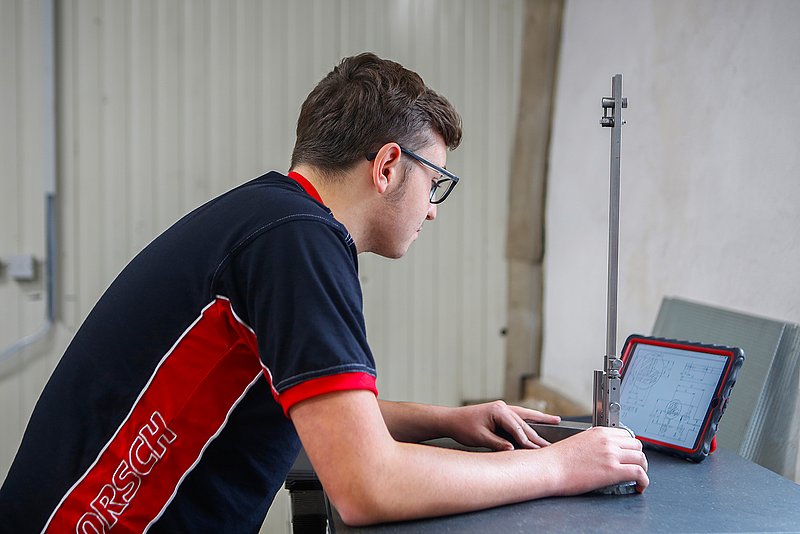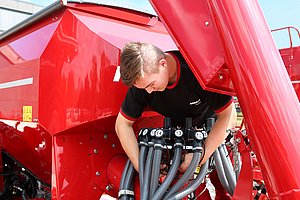New vocational training concept
As of next year, the vocational training at HORSCH will be adapted even better to the requirements of the individual departments. This requires a restructuring of the apprenticeship model.

The professional world is changing constantly. New professions arise, old ones cease to exist. Digitisation considerably contributes to this change and the professions that require vocational training are also concerned. HORSCH already recognized this change some time ago and therefore will adapt the vocational training concept to the changing conditions. This is another way to put the focus on the customer. The apprentices are prepared even more subject-specifically for their tasks in the individual departments and thus can respond even better to the individual requirements of the customers.
As of 2020 some vocational training professions will no longer be available in their present form. For the remaining professions there will be new concepts with individual training modules. The objective is to adapt the vocational training at HORSCH to the future requirements. In the future, the focus will be on the internal training within the company to prepare the apprentices better for their tasks in the different departments.
Vocational training professions like industrial mechanic, agricultural and construction machine mechatronic, electronic technician, production technologist and agricultural services specialist will no longer exist at HORSCH. These professions will be replaced by a mechatronic training with different advanced training modules.
The vocational training as a mechatronic more and more comes to the fore as topics like sensor technology and electronics become more and more important. This is why it will be used as a basis and individual additional training modules will be added to replace the other outdated professions.
If in the future an apprentice for example is to work in the service sector, enhancement modules in the sectors hydraulics, English and communication will be added to the vocational training. This replaces the vocational training as an agricultural and construction machine mechanic. If the apprentices will work in R & D and in the quality management department the training as a mechatronic includes additional modules for CAD drawing, hydraulics and English. For apprentices who will work in the agricultural services sector there will be additional training modules for agricultural practice, hydraulics, English and communication.

The additional training modules will mostly be carried out inside the company. The number of lessons depend on the subject. The final finishing is done in the respective departments. Due to this new concept the basic training is shortened considerably, as the apprentices soon start to work in the different departments. Due to the frequent changes between the educational modules and the practical work the apprentices can take up employment in the specific department directly after they have passed their exams without any onboarding time.